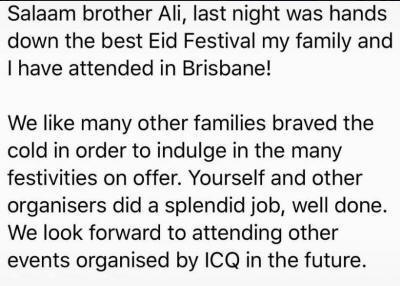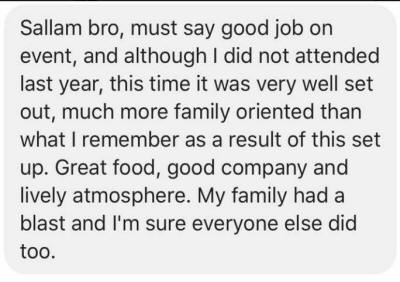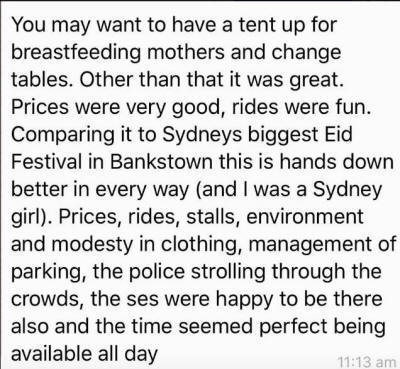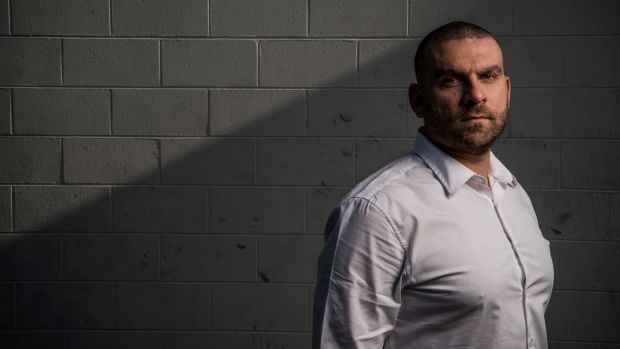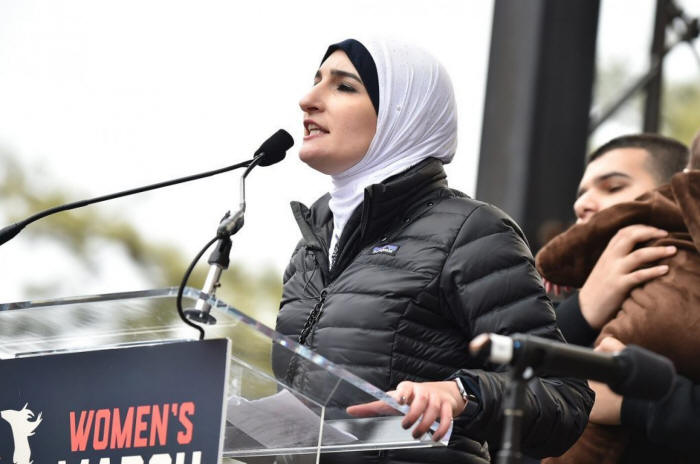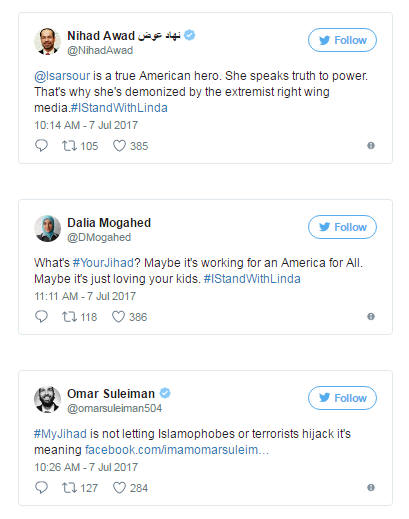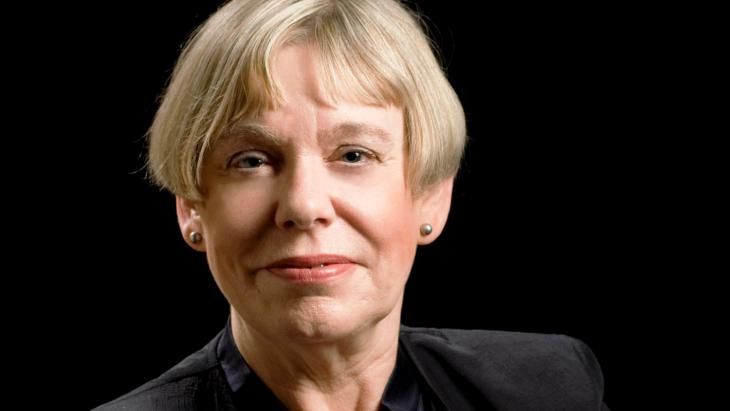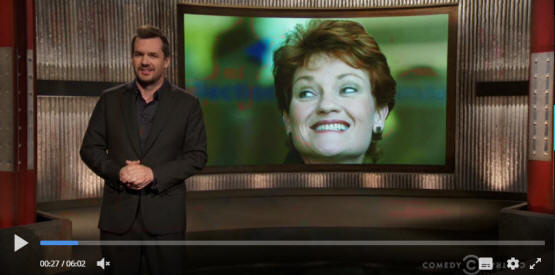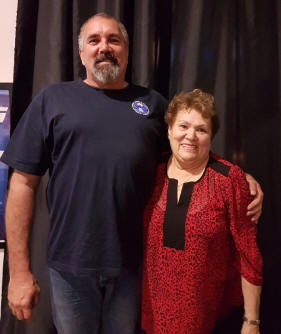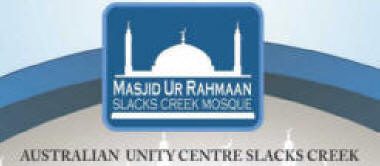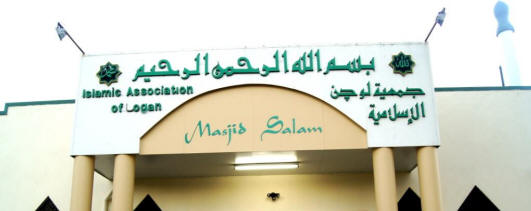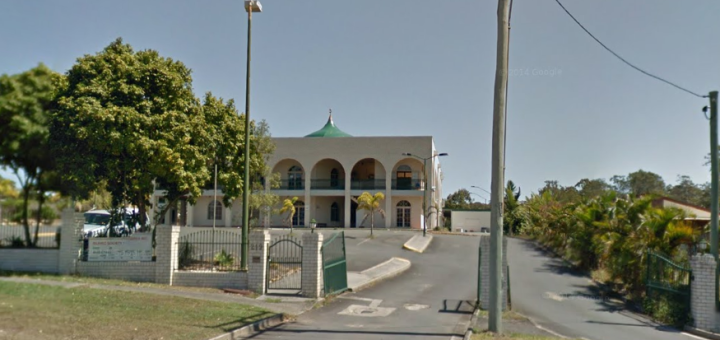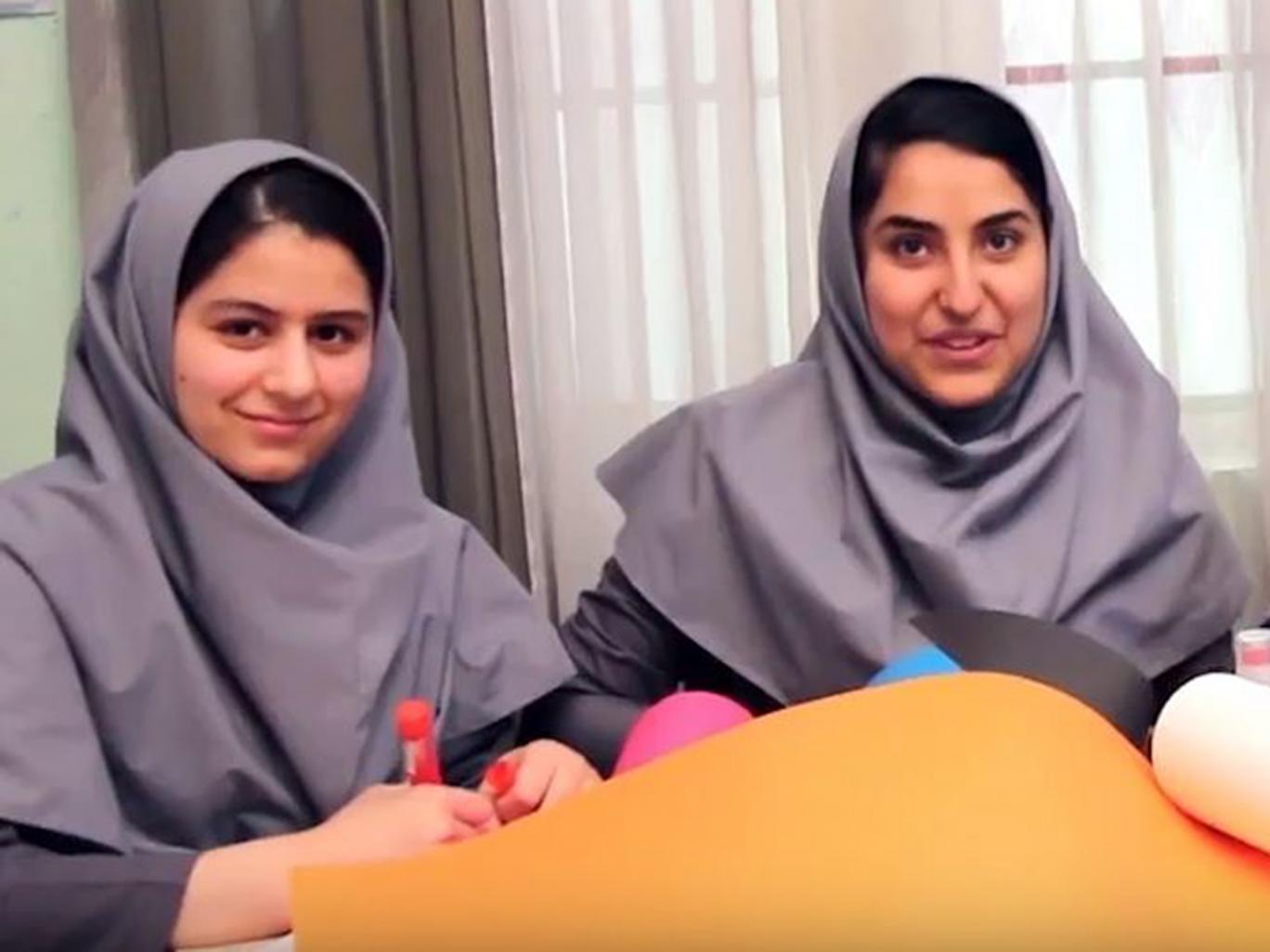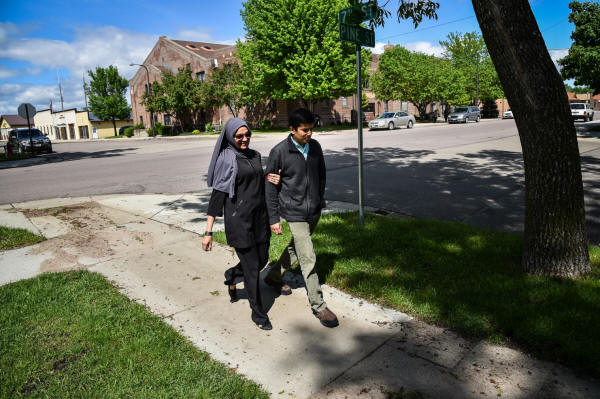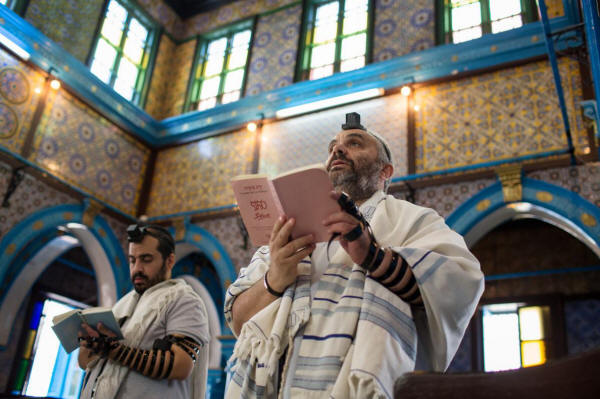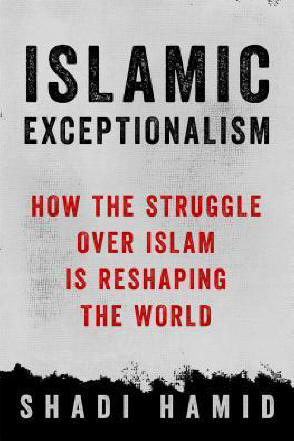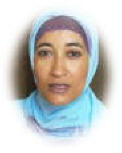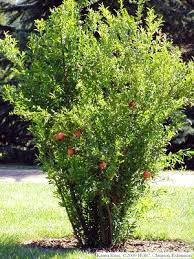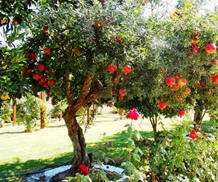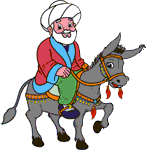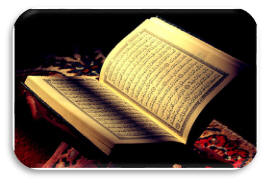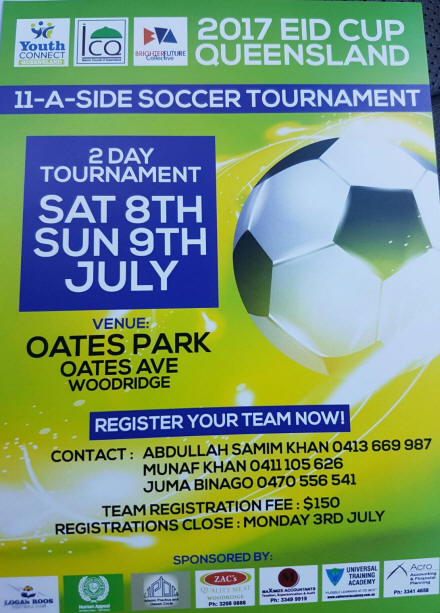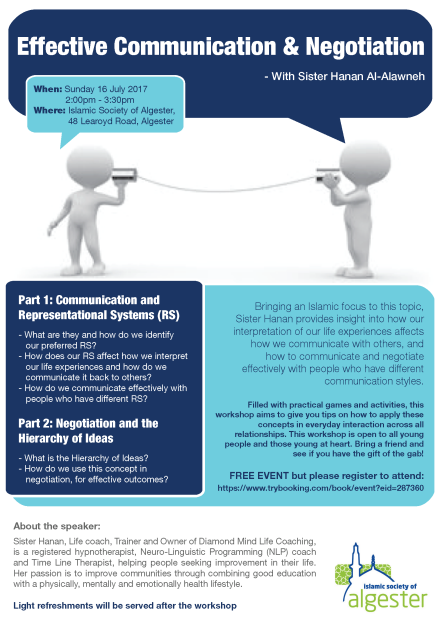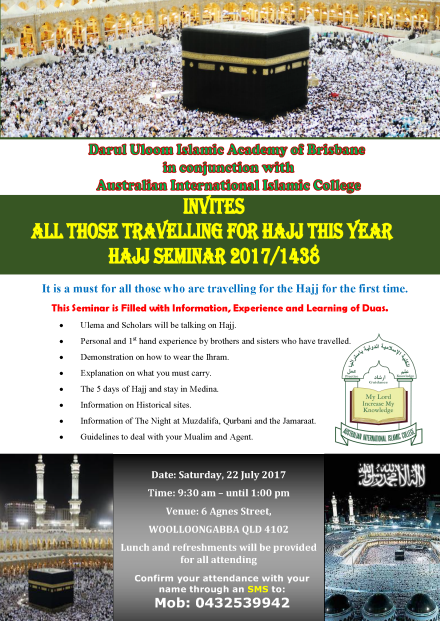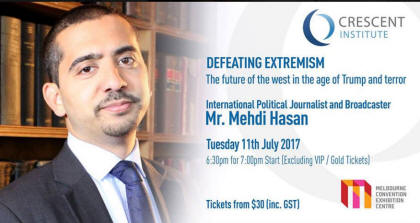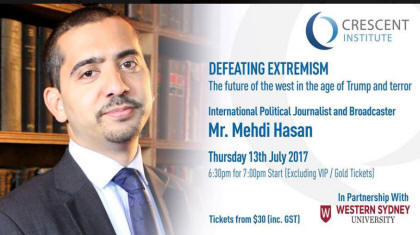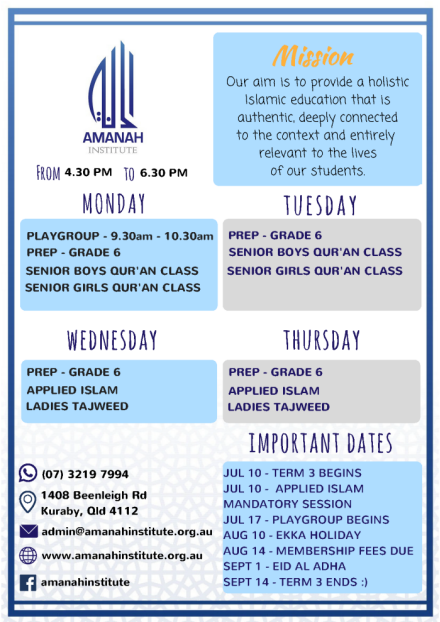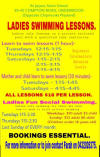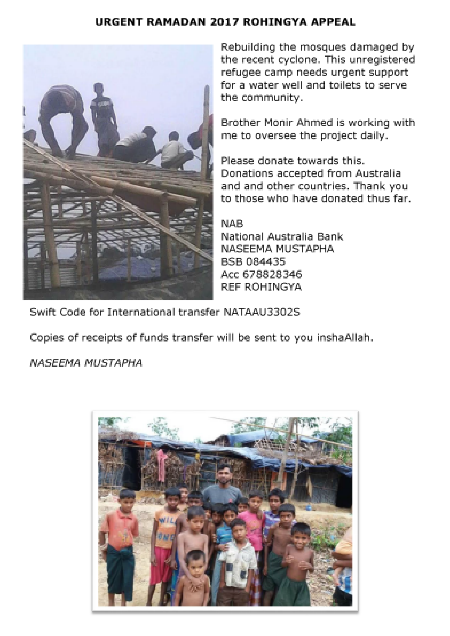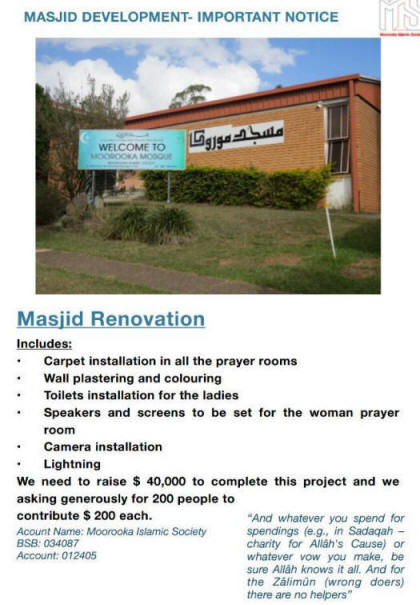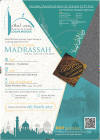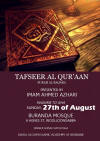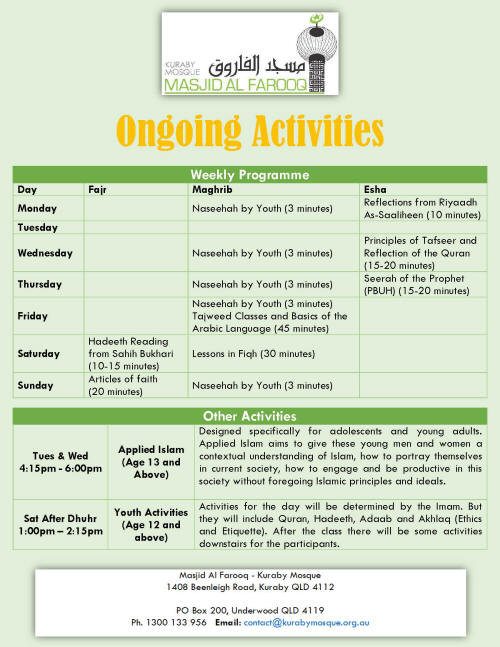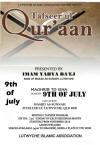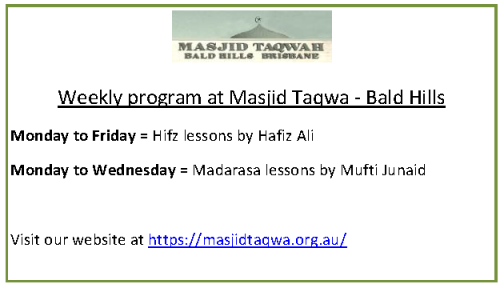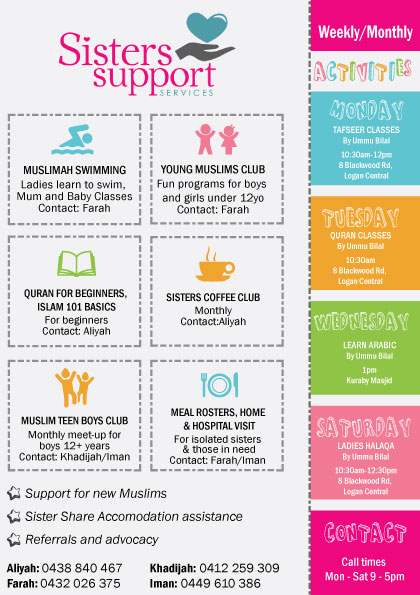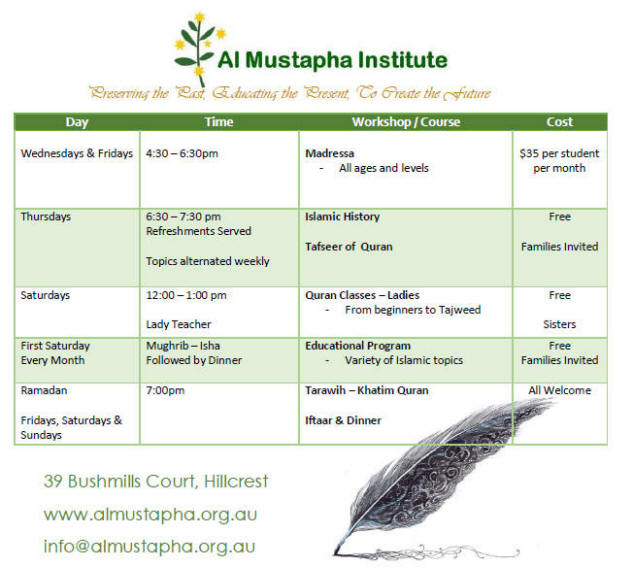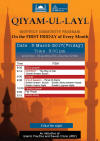|
Given that I am now the
most publicly hated Muslim
in Australia, people have
been asking me how I am.
What do I say? That life has
been great and I can’t wait
to start my new adventure in
London? That I’ve been
overwhelmed with messages of
support? Or do I tell them
that it’s been thoroughly
rubbish? That it is
humiliating to have almost
90,000 twisted words written
about me in the three months
since Anzac Day, words that
are largely laced with hate.
Do I reveal that it’s
infuriatingly frustrating to
have worked for years as an
engineer, only to have that
erased from my public
narrative? That it is
surreal to be discussed in
parliamentary question time
and Senate estimates for
volunteering to promote
Australia through public
diplomacy programs? That I
get death threats on a daily
basis, and I have to
reassure my parents that I
will be fine, when maybe I
won’t be? That I’ve resorted
to moving house, changing my
phone number, deleting my
social media apps. That
journalists sneak into my
events with schoolchildren
to sensationally report on
what I share. That I’ve been
sent videos of beheadings,
slayings and rapes from
people suggesting the same
should happen to me.
Do I reassure my parents or
do I tell them the truth? I
have yet to decide.
I wrote the essay below at
the beginning of the year,
post Q&A but pre-Anzac. Even
that statement is a
reflection of the sad
reality that my life seems
to simply exist in reference
to the various outrages my
voice has caused.
Whether or not one agrees
with me isn’t really the
point. The reality is the
visceral nature of the fury
– almost every time I share
a perspective or make a
statement in any forum – is
more about who I am than
about what is said. We
should be beyond that but we
are not. Many, post-Anzac,
said the response wasn’t
about me but about what I
represent. Whether or not
that is true, it has
affected my life, deeply and
personally.
***
"Ah, the worst that can
happen is someone
sending you an angry
email. Just don’t read
it, you will be fine.
Don’t forget to take
your vitamins. Have you
checked your iron
levels? You know your
anaemia makes you
tired."
Modern-day activism does not
garner much sympathy from my
migrant parents. Looking at
it objectively it’s
something I can understand:
in Sudan the kinds of fights
they were involved in had
much higher risks. Their
friends were jailed,
tortured, killed. My mother
faced off an army who wanted
to storm her university’s
dormitory during Colonel
Omar al-Bashir’s coup of
1989. My father would
regularly tell my younger
brother and me stories of
what kind of dangers people
faced as they fought for
their political ideals.
“One of our friends was
taken by police during a
protest, for no apparent
reason,” Dad recounted one
evening at the dinner table.
“We all knew that if we did
not get him back in time, he
would be killed. So we
kicked up a huge fuss to get
him back, stormed the police
stations, got in the media …
We did not hear anything
back by the evening, and
thought that all was lost.
The next morning, the man’s
mother heard a knock on the
door. Someone had dumped a
body at the foot of the
gate, bloody and beaten
beyond recognition. It was
our friend, so badly
tortured that his own mother
did not recognise him.
Subhanallah though, he was
still alive.”
Such stories are not
uncommon for anyone who has
lived in a nation cursed by
conflict. In fact, violence
can become so normalised
that it can be an expected
consequence of pushing for
social or political change,
and there are no systems of
protection in place to
guarantee a person’s
physical safety. It’s no
wonder, then, that the
battles of a young “keyboard
warrior” in Australia do not
seem quite so serious to my
war-weary parents. Compared
with what they moved away
from, the 140-character
threats of “Twitter trolls”
seem almost quaint.
There is one major
difference, however.
Although the ideas we are
fighting for – human rights,
social justice, equality –
have not necessarily
changed, the ways those
battles are fought certainly
have. My parents’ activism
was localised, talking to
issues that at most would
affect the surrounding
region and segment of
Sudanese society. Theirs was
a fight for just governance
within a single country,
rather than an ideological
battle across nations. It
was also an analogue
challenge. The nature of
communication meant that
individual reach was limited
and therefore individual
exposure appropriately
throttled. This lent itself
to a collective front,
buffering individuals
somewhat from personal
criticism and opposition.
Today a public advocate’s
platform is digital and
greatly magnified. An issue
or debate unfolding in one
place can be amplified
through a video or tweet to
gain international support
or condemnation – sometimes
both – simultaneously. News
travels almost instantly,
and the feedback is equally
as swift. Individuals can be
rewarded with incredible
highs – a following that
spans the globe, the ability
to easily create content
that reaches millions,
membership of an online
community that “gets it” –
but also with floods of
criticism and personal,
pointed abuse.
The way this feedback is
delivered is also incredibly
isolating – abuse appears in
an individual’s inbox,
Twitter feed, Facebook page.
And while the inverse to
this – retweets, likes,
positive comments and
messages – does give some
sense of solidarity and a
collective front, that front
as a number on a screen
rather than the physical
presence of others can only
go so far towards steeling
your resolve. There is
little shared experience to
commiserate upon. Even among
those who identify with each
other, it is difficult to
convey a sense of such
personal attacks. We might
all be fighting the same
fight but we have our own
demons that divide us for
easy picking.
Furthermore, an individual’s
online presence creates a
safety concern that is
different from those
experienced by previous
generations. Whereas my
parents would have feared
government retribution in
the form of being detained,
disappeared or killed, the
threats faced by activists
and advocates today are not
nearly as organised. They
are amorphous, overwhelming
and seemingly impossible to
defend against. Imagine
every single piece of
information about you, which
you have inadvertently made
available online somehow, in
the hands of someone who
does not know you, does not
like you and does not care
what happens to you – either
a teenage hacker or a
national broadsheet – and
few rules or consequences if
that information is used
against you. It is almost
enough to terrify an
activist into silence.
Almost.
“You should just get
offline!” I am regularly
advised, after explaining
what it is like to be a
commentator in the public
space, advocating for
ludicrous concepts such as
the right to be heard or the
seemingly radical ideal of
equality. Asking us to go
offline is like asking us to
leave the streets. Sure,
it’s the safe thing to do,
but it ignores the
importance of the online in
any struggle today. The
online and offline worlds
are inextricably linked; in
2017 they are simply
different dimensions of the
same reality.
***
I learnt these realities in
a baptism of fire in
September 2016 after I
walked out of a speech and
accidentally picked an
ideological fight with a US
woman who is an important
literary figure. What I did
not realise at the time was
that this is something a
young, brown Muslim woman
simply must not do,
particularly if the conflict
is even vaguely connected to
the nebulous concept dubbed
“identity politics” – a
phrase coined, seemingly, to
dismiss or disregard anyone
asking for their oppression,
historical context or
personal reality to be
recognised and respected.
How silly of me to miss the
memo. Respect is so passé.
I shall spare you the
details; googling “Lionel
Shriver Yassmin Abdel-Magied”
should be enough to keep you
entertained for hours. Put
simply, I had flown a little
too close to the sun. I’d
been given my wings, told I
could fly with the flock and
contribute to the discussion
as an equal, told I could be
a part of “us”. No one
mentioned the feathers were
fixed in place with wax, and
the sun wouldn’t hesitate to
strip them away.
Walking out, and then
writing an (admittedly)
emotionally charged piece
about my reasoning, led to
an unexpected – and global –
ideological hammering.
Criticism and ad hominem
attacks were levelled from
all over the world, starting
with Australia’s national
broadsheet and stretching
all the way to the New York
Times.
Not only was the outcry
deafening but the commentary
it unleashed was merciless.
Breitbart, the (fake?) news
site and platform of the
“alt-right” – formerly
chaired by Steve Bannon, now
Donald Trump’s chief
strategist – featured an
article on the encounter. It
was not as cruel as it could
have been, if I’m honest.
But it was certainly deeply
convinced of its own
righteousness:
‘Everyone’s entitled to
their opinion’ … But if
that opinion happens to
be so ill
thought-through, poorly
argued, whiny, needy,
constrictive, selfish,
ugly, ignorant, flat out
wrong and probably quite
dangerous too, then they
deserve to be called on
it and relentlessly,
mercilessly mocked till
they never spout such
unutterable bollocks
ever again in their
special snowflake lives.
I had messages from friends
in India, Italy and
Indonesia whose friends and
family had been discussing
the affair. For a brief
moment it became the topic
of dinner-table
conversation. The result of
that spotlight though meant
that for the next three or
four weeks my life was
overwhelmed by this story. I
had hundreds of emails a
day, to the point where I
began to automatically
delete them and avoided my
multiple inboxes completely,
to the chagrin of those who
were trying to connect for
non Shriver-related
business. I deleted Twitter
from my phone, deactivated
Facebook and wrote almost
nothing online for an entire
month. Which, for me, is a
pretty long time.
But because the online is
not truly separate from the
offline in our lives, it
wasn’t truly an online coma.
The modern-day equivalent of
a pack of citizen paparazzi,
perhaps, were still on the
front lawn, constantly
slipping notes under the
door, knocking on the
windows, yelling
obscenities. While I
couldn’t hear or see them, I
knew they were there.
For a modern-day “social
justice warrior”, as we are
often pejoratively named,
being attacked online comes
with a sense of being
desperately alone. It was me
and a glowing screen, the
dings of messages, tweets,
emails sent by strangers
reminding me of my place in
the world.
Drip by drip, message by
message, it’s the Chinese
water torture of the online
age.
***
The weeks rolled by. The
influx of messages
eventually slowed and a
semblance of normality was
restored. It seemed the
storm had passed.
Months later, at the Jaipur
literature festival, I
bumped into another
important literary figure.
Tall, imposing and very
British, he was the type of
high-level agent who
wouldn’t normally bother
with someone like me – save
for the fact that I too am
tall, and our eyes met
briefly as he crossed the
lawn. He slowed as he
approached me, then stopped
as his face brightened.
“Oh, I know you,” he said.
“You’re the girl they’re all
talking about!” I assumed he
was referring to the elite
group of global literary
stars gathered at the
writers’ party that evening.
“Good things, I hope?” I
said, glibly.
His response was emphatic
and, in a typical English
fashion, faintly apologetic.
“Oh, no, no, I’m afraid not.
They all disagree with you,
really.”
“Oh!” I feigned shock,
though of course I was very
well aware. The next line
was much more genuine: “I do
wish they would disagree to
my face! I would love to
have a conversation with
them.”
The agent shook his head. It
was late and he looked
slightly intoxicated, which
was probably why he was more
forthright than Englishmen
usually seem to be.
“Oh, no, no one would do
that. You’re very
intimidating! We’re all a
little frightened of you.”
I flashed my biggest,
pearliest smile and pointed
at my teeth. “Look at this
face, hey? How could I
possibly be intimidating?”
But it seems there is
something incredibly
intimidating about a young,
brown Muslim woman who is
unafraid to speak her mind.
This became clear again in
February 2017 when I was
invited to join a panel
discussion on the ABC’s Q&A.
You may have seen the video
– after all, it took only a
week for the clip to reach
12 million views on
Facebook. In essence, I
challenged Senator Jacqui
Lambie’s views on sharia and
Islam, loudly and
passionately. The immediate
response online was
incredibly positive,
bolstering my confidence –
but that was short-lived. My
head above the parapet, I
then became the subject of a
strange and unnecessary
character assassination by
the national broadsheet.
“This is it,” I thought.
“I’m never going to get a
corporate job again. Who
will employ me after the
things that have been said?”
But this time around, I
would be pleasantly
surprised. Within a week,
voices of support made
themselves heard: radio
presenters challenged the
criticisms levied against
me, breakfast show hosts
defended my reputation, and
much ink was spilled in
calling out the bullying and
canvassing for a more
considered and egalitarian
response. I could not
believe it, to be honest:
the articles and columns
laced with hatred I had come
to expect – but others
putting themselves on the
line to offer their support?
It was a humbling and
fascinating experience.
Perhaps, on reflection, I
was not in this alone after
all.
***
The irony in all this, of
course, is that I am no one
very important. I do not
hold an elected office, I do
not officially represent any
racial or cultural group,
and I have never been part
of a political party, union
or even political student
organisation. I am a
25-year-old Muslim
engineering chick, born in
the Sahara desert, whose
words occasionally find
themselves in the public
arena. And if a few words
that I put together are
enough to terrify
institutions into attacking
me, stumbling over
themselves to demonstrate
why “people like her” are
wrong and why we should not
be listened to because our
words are oppressive, then
one has to ask, what are
they so afraid of? Why are
they so afraid? For if the
argument was truly as
irrelevant as so many claim
it to be, then surely it
wouldn’t be worth all this
energy.
Today’s identity politics
are about power – but not
“real” or “traditional”
power. The reality is, real
power – that which lies in
financial resources, the
mainstream media and
politics – is held by hands
similar to those of 50 or
100 years ago: white, male
hands. Not much has changed.
Sure, there are several
women and people of colour
fighting the fight, and many
more making their way up the
ranks, but look at the true
hallmarks of power. Who owns
the media companies,
controls the big corporates,
runs the countries? If the
real, hard stations of power
are still in the hands of
those who have always had
it, why are they so worried?
Part of me suspects that the
reason these attacks are so
vitriolic, swift and
all-encompassing is because
they are about identity.
Identity politics is
personal, and that’s why
people take it so
personally. By asserting my
identity in a way that
challenges my “place in the
world”, I inadvertently
challenge the place of those
who feel entitled to their
privilege and status. That
feels not only wrong to such
people, but deeply,
personally offensive –
because what is at stake is
who they are in the world.
And so they fight viciously,
because if privilege and
status and wealth and
whiteness define who they
are, what else could be more
valuable?
Those who lack a definitive
“place” in society have
little to lose by calling
out injustices and
structural inequalities, and
much to gain by disrupting
the status quo. For those
with something to lose in
that disruption, this can be
a terrifying prospect. For
everybody else, it is a
reminder of the strength and
conviction that is needed to
fight for a more just world.
On that, my parents and I
agree.
• This is an edited extract
from Griffith Review 56:
Millennials Strike Back

The Guardian
Despite the rhetoric,
here's why Islamophobes
don't want Yassmin to go
By Randa Abdel-Fattah
It's 2018, and every Muslim
in Australia has been
interned. The "radicals",
the "moderates", the devout,
the nominal, the
Aussie-born, the migrants,
the Logie winner, the TV
hosts, the Q&A guests. The
lot. Australia is now a
Muslim-free country.
Has Islamophobia won? Well,
no. Because despite the
rhetoric and hysteria, this
is precisely what
Islamophobia does not want.
You see, Islamophobia needs
Muslims. Not because it
"needs an enemy". But
because Islamophobia is
driven by the same logics
that define patriarchy.
This is very different to
saying that Islamophobia is
about hating Muslims. If
only it were that simple.
Think about how much easier
it is to challenge misogyny
– hatred of women – than it
is to challenge patriarchy –
a society structured on male
domination, privilege and
control. In the patriarchal
utopia, women are not
removed from society, but
they exist within a space
that seeks to contain,
groom, control and possess
them.
This, too, is the goal of
Islamophobia, and nothing
has demonstrated its
internal patriarchal logic
more clearly than the
treatment of Yassmin Abdel-Magied
– who, after weathering
months of intense
Islamophobic backlash, drew
further ire this week when
she announced she's decided
to leave the country.
Abdel-Magied has come to
represent everything that
Islamophobia hates – but
actually loves– about "the
Muslim problem". It's a game
of seeing how far "the
Muslim" can be controlled
and disciplined. Like men
who enjoy asserting power
over women's lives, there is
a perverted pleasure in this
exercise of seeking to
dominate Muslim lives –
telling Muslims how and
where to dress, speak, eat,
worship, and live.

The SMH
Channel 7 removes
‘hateful’ poll over Yassmin
Abdel-Magied’s decision to
leave the country
CHANNEL 7’s digital arm has
“unreservedly” apologised
for publishing a now removed
Facebook poll asking
followers to vote on whether
the Muslim activist Yassmin
Abdel-Magied should leave
the country or “face her
critics”.
The poll, posted on the 7
News Australia Facebook
page, was slammed by
followers and commentators
for inciting racist
discussion and bullying, and
Ms Abdel-Magied herself said
it invited “prejudice and
discrimination”.
After being questioned by
news.com.au, the station
removed the poll from and
admitted it “should never
have been posted”.
Yahoo7, which administers
the 7 News Australia
Facebook page along together
with Seven News, has since
taken responsibility for the
post.
The Facebook post published
Tuesday asked followers to
comment on Ms Magied’s
decision to leave Australia.
The controversial television
presenter and commentator
recently announced she was
moving to London after being
“traumatised” over facing
what she described as
“deeply racist” criticism.
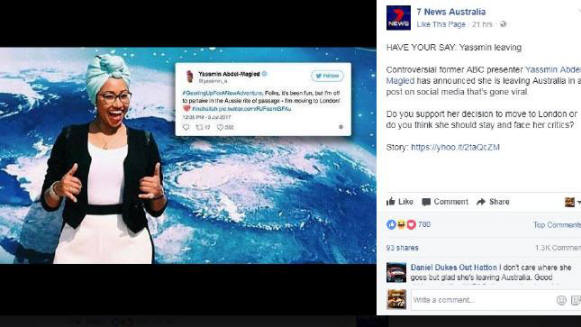
The engineer-turned-media
personality has been
constantly criticised since
posting an insensitive
comment on Anzac Day which
she removed from her page.
Seven’s post shared the news
that Ms Abdel-Magied had
announced she was leaving
Australia and posed the
question: “Do you support
her decision to move to
London or do you think she
should stay and face her
critics?”
The post attracted more than
1600 comments and 17,500
votes, according to
Facebook.
In an update
published overnight 15 per
cent of respondents had
voted “no” and 85 per cent
has voted “yes”.
While many respondents were
critical of Ms Abdel-Magied,
an outspoken Muslim who has
defended her religion
publicly, a lot of
commenters hit Seven with
accusations of “bullying”
over the decision to publish
it and invite “racist” and
“vitriolic” discussion”.
“You need a third option
“this shouldn’t even be
polled,” Laura Jane wrote.
“This is awful. Why would
you think it was acceptable
to poll people on Yassmin’s
decision to move to London?
Particularly in light of the
relentless racist vitriol
that she’s copped that 7
News Australia is
contributing to,” Sophie
Trevitt wrote.
“As a media outlet, you
don’t think you have any
ethical and professional
responsibilities? Check out
the comments below.”
Liam O’Reilly wrote: “FFS 7
news stop perpetuating hate
for clicks!
In an email
to news.com.au, Ms Abdel-Magied
said she considered the post
a poor publishing decision.
“This is more a reflection
of Channel 7’s poor
editorial decision-making
than anything else,” she
said.
“The outlet’s profiling of
me in this way invites
prejudice and
discrimination. It’s pretty
trashy click-bait.”
A spokeswoman for Channel 7
told news.com.au the
situation was being
investigated.
“The poll have been removed.
It should never have been
posted and we are reviewing
how that occurred.”
News.com.au has since
received a statement from
Yahoo7 apologising for the
post.
“The poll
regarding Yassmin Abdel-Magied
was posted by the Yahoo7
online news team, which
administers the 7News
Australia Facebook page,
together with 7News,” the
statement read.
“It was posted to genuinely
create discussion around a
balanced article and it was
never the intention to
generate inappropriate
commentary on social media.
“We accept this was an error
of judgment, the post has
been removed and we
unreservedly apologise to
anyone offended.”

News.com
Why Yassmin Abdel-Magied
Had To Be Destroyed
Moderate,
educated, and articulate
young Australian-Muslims
contradict the
generalisations of
Australia’s growing
Islamophobic current, writes
Max Chalmers.
***
For this
burgeoning sector of the
country, the apparition of a
Muslim who looks like
anything other than a
suicide bomber is a scandal.
It contradicts their varied
assertions about the true
evil of Islam, and the
universal untrustworthiness
of Muslims. This growing,
increasingly paranoid
audience have had their
preconceptions so heavily
groomed that any
contradiction becomes an
outrage.
That’s one reason why the
drawn-out and orchestrated
demise of Abdel-Magied has
been so unpleasant to watch
from afar [Ed’s note: Max
Chalmers is now based in the
US].
The
appearance of the ‘moderate
Muslim’, the personage that
newspapers like The
Australian insist they will
tolerate, cannot be allowed
to stand.
“The scale [of the response]
would suggest Yassmin outed
herself on the program as a
paedophile or a North Korean
spy,” Susan Carland wrote
after Yassmin Fury Round
One.
Then, on Anzac day, Abdel-Magied
posted: “LEST. WE. FORGET
(Manus, Nauru, Syria,
Palestine)”. The post was
quickly removed and the
author apologised.
Again, very few responders
actually bothered to put
forward an argument
explaining why this (very
ambiguous) post was
offensive, moving straight
to calls for Abdel-Magied to
be punished. There was a
glee about it. Finally,
something to hang her with.
As the attacks maintained
their pace, their obsessive
tracking of Abdel-Magied’s
movements, their hysteria, a
federal senator eventually
declared the young
Australian should “move to
one of these Arab
dictatorships that are so
welcoming of women.”
As Carland argued, Abdel-Magied’s
critics – the ones who
insist, ‘no no, it’s
behaviours and ideas, not
identities, that we oppose’
– had unmasked themselves.
“It
finally puts into full
technicolour display the
truth of their feelings
towards Muslims: that the
only acceptable Muslim is a
non-Muslim.”
“Many Muslim women avoid the
media, think twice about
public interventions because
the personal cost is so
vicious and so high,”
Abdel-Fattah noted.
“Many Muslim women avoid the
media, think twice about
public interventions because
the personal cost is so
vicious and so high,”
Abdel-Fattah noted.
As with Abdel-Magied, you
may well object to a
particular position held by
Aly. But it is only by
virtue of his religious
identity that he could ever
be treated as truly
outrageous by so many. And
it is only by virtue of his
liberal beliefs, articulate
nature, successful
integration, and handsome
televisual image that his
identity could cause such
burning fury.
He is worse than the
extremist. He is the
moderate who thinly-veiled
Islamophobes have insisted
they will accept.
With the ferocity and fury
that have been unleashed,
it’s easy to forget just how
absurd the situation is.
Abdel-Magied has
consistently put forward a
familiar critique of
Australia as a nation that
has failed to represent and
respond to all of its
inhabitants and has
committed historical wrongs
as a state. She adds a kind
of identity politics to
this, a way of thinking now
intuitive to many younger
Australians especially.
You may take issue with this
worldview or ideological
bent, but you can’t deny it
is drawn from mainstream
currents.
In a
society that bills itself as
open, Abdel-Magied should
have the right to make
radical and even extremist
critiques. As it turns out,
however, she does not.
Migrants do not have to take
the path of Abdel-Magied.
The process of immigration
is one that may take
generations to settle. It is
a tumultuous transformation.
People need to be given the
room to acclimatise, to make
paths for themselves on
their own terms.
But that is not the path
Abdel-Magied has chosen. She
has rapidly joined the
mainstream conversation and
been unafraid to assert her
identity, on her own terms.
She has taken a few steps
down the well-trodden paths
of Australia’s culture wars.
She has not functioned
purely as a spokesperson to
denounce her own non-white
community.
And
worst of all, she hasn’t
done anything unethical or
outrageous in the process.
That’s a crime a growing
number of Australians cannot
abide.

New Matilda |









